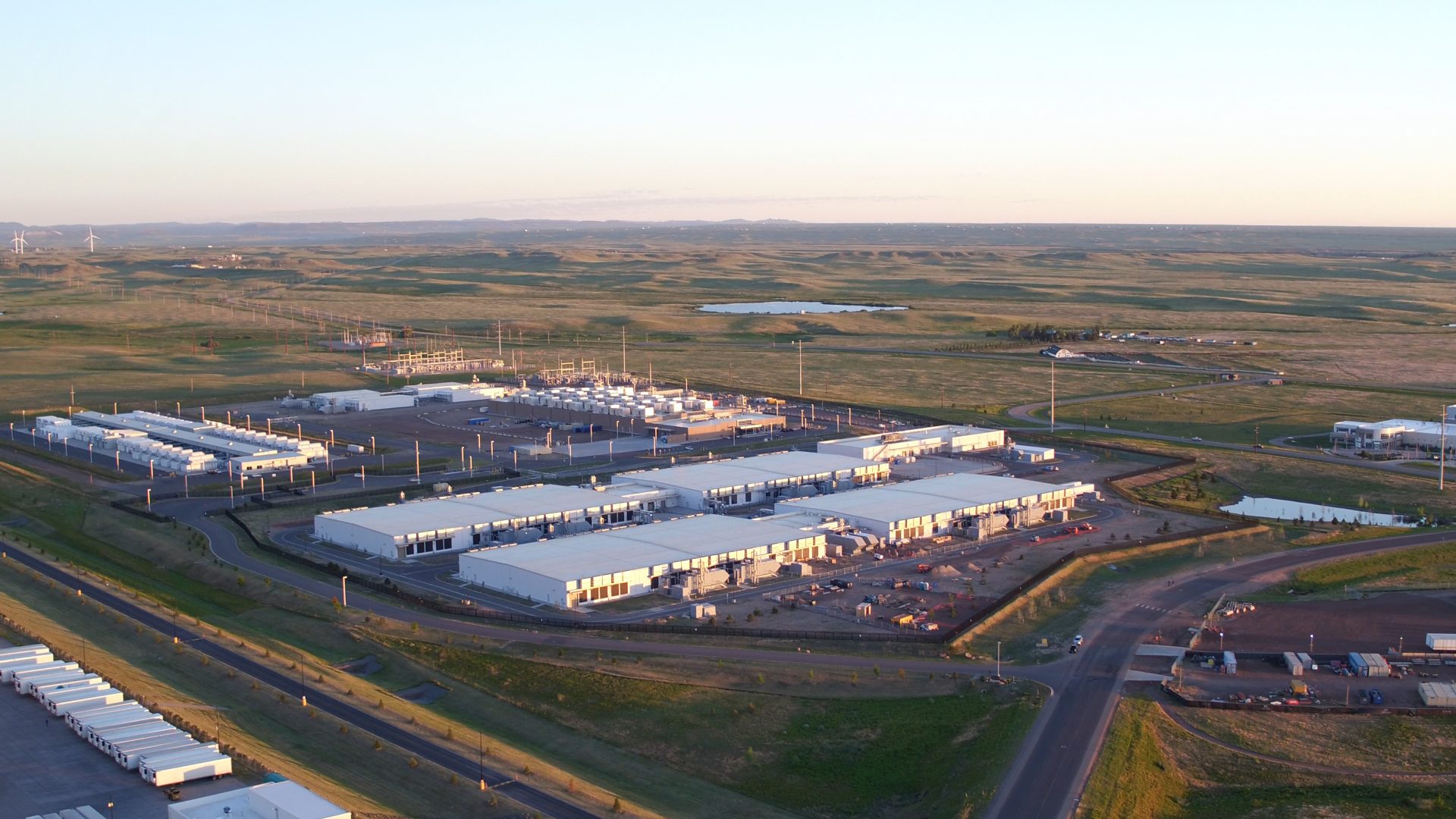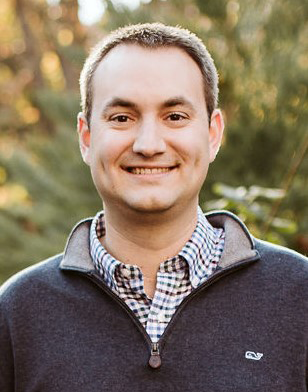This interview is the next installment in our series of profiles on sustainability leaders among Scheller College of Business alumni. Michael Oxman, managing director of the Ray C. Anderson Center for Sustainable Business (“Center”) speaks with Mark Jacobson (MBA ’18), an energy project manager for Microsoft’s data center and energy sustainability team. Mark shares his career trajectory, thoughts on the intersection of sustainability and the energy sector, and advice for students looking to incorporate their passion for sustainability into their careers.
Michael Oxman: Thanks for taking the time to share your journey. To get started, why don’t you take us back to the beginning. Where did you grow up, and how did you find your way to Scheller College?
Mark Jacobson: I grew up in the Seattle area and was an undergraduate at the University of Washington. Even in college, I aspired to pursue a career along the lines of “business for good.” I had an internship with a company that created biochemicals and thought, “Hey, here’s a company that’s making money and helping the environment.” Renewable energy in particular sparked my interest. After I graduated in 2011 [with a B.A. in Business Administration and concentration in finance], I worked for a solar company in California where I helped to develop commercial and utility-scale solar projects. Then, I had another position with a company that was involved in both the energy and data center industries. This role introduced me to data centers as an interesting category of energy consumers. Companies such as Microsoft, Amazon, and Google were starting to build giant facilities that power the internet. These facilities consume a ton of power, and companies were taking very progressive approaches to energy policies and markets. As part of my MBA decision, I focused on programs that would provide me with the opportunity to increase my knowledge of sustainable business and the energy sector, both of which were close at heart. When I visited Scheller College for my admissions interview, I met with folks at the Center. Those conversations solidified my interest in coming to Scheller College.
MO: You mentioned that when you interned for the biochemical company, you became interested in, as Ray C. Anderson would say, “doing well by doing good.” What did you find compelling about the company’s business model that propelled you forward in business and sustainability?
MJ: That company, Blue Marble Biomaterials, upcycled spent coffee grounds and beer grains via a chemical technology process that could turn those materials into a drop-in replacement for petroleum chemicals. That work was fascinating from a technology perspective. Also, as I focused on doing research for the company on different markets, I became aware of how pervasive oil and other non-sustainable materials are in everything we use and consume every day. Being in a startup was another really valuable experience to have in my undergraduate years, as I gained exposure to business, technology, and sales.
MO: What are some of the competencies and skills that you took away from the Scheller College MBA Program?
MJ: As a Graduate Sustainability Fellow with the Center, I pursued a project that evaluated the economics of solar energy in Georgia. The goal was to identify how soon solar energy would reach economic parity with traditional, incumbent power generation resources. If the cleaner energy option is the same price, it becomes an easier choice for consumers to switch. I believe that pushing for clean energy solutions that make that transition more seamless from a cost perspective will accelerate adoption as compared to those that require a “green premium.” I was able to parlay my work as a Fellow into a second-year project working with the renewable energy team at Walmart. Applying my Scheller College learnings to a real company was an awesome experience.
MO: In what other ways did you pursue sustainable business in graduate school?
MJ: I found it valuable to incorporate my passion for sustainability into my normal coursework. For example, in one of my marketing classes, I convinced my group to focus our project around a clean energy product—the Tesla Powerwall. Also, in my entrepreneurial finance class, my team helped Quest Renewables, a company at the Georgia Tech Advanced Technology Development Center (ATDC), develop a valuation for their business. I would challenge current students to think about how they can bring projects related to their personal passion into other classes.
MO: That’s a great point. One of the things our Center tries to do is infuse the curriculum (both core classes and electives) with relevant sustainability topics. Also, if our graduates don’t land in sustainability-focused roles, we encourage them to find ways to connect their passion for sustainability to their function. Have you seen others who have been able to do that successfully?
MJ: The energy and sustainability team at Microsoft has people from diverse backgrounds. The woman who leads our sustainability efforts started out in sales. That goes to show, if people are passionate about the work, actively network internally, and are successful in pursuing and selling the value of side projects that are attractive to their company—they could someday find themselves leading sustainability at their company!
MO: When you were interviewing and considering different opportunities, did you consider the alignment of your values with company values?
MJ: Yes, that was important to me. However, it’s also critical to recognize the impact you can have regardless of the company you work for. On one side of the spectrum, you could expand the work of a company like Microsoft, which is already quite progressive in regard to sustainability. On the other side, you could also make a big impact in companies that are not as advanced in regard to sustainability.
MO: What is your current role?
MJ: I am an energy project manager for Microsoft’s data center and energy sustainability team.

Microsoft data center in Cheyenne, Wyoming.
MO: Can you give our readers a little background data centers and their relationship to Microsoft’s carbon mitigation goals?
MJ: Sure. Most of us are plugged into our computers and phones 24/7. All of those internet activities connect back to physical infrastructure, which includes data centers. These facilities consume a ton of electricity, and this amount is only increasing. To mitigate this impact, Microsoft has already procured approximately 1.9 gigawatts of renewable energy and is committed to shifting to 100% renewable energy by 2025. For context, 500 megawatts would power more than 70,000 homes in the United States per year.
MO: What does a typical day look like for you?
MJ: I’m fortunate to work on a wide range of projects. On a day-to-day basis, our team is responsible for ensuring that we have the energy infrastructure and energy supply to support our data centers across the globe. The lifecycle of our engagement on a project spans working with our site selection team to determine where we should locate our data centers and partnering with utilities to develop the infrastructure and energy contracts to power those facilities. My role involves financial modeling to help build a business case. For example, our team tries to minimize utility costs while also developing rates that supply us with clean power that can help us meet our ambitious renewable energy and climate goals. On the backend, we maintain a long-term relationship with the utility to work through growth, policy, and creative technology projects. All of these projects take a lot of coordination across various teams and juggling numerous moving pieces.
MO: Of those things, what do you find most exciting?
MJ: I am very fortunate to have the opportunity to work at the intersection of business, technology, and sustainability—all areas that are of great personal interest. I enjoy partnering with utilities to assess new technologies and create energy solutions that help Microsoft achieve its environmental goals, and extending the positive impacts of those same benefits to other everyday customers. Given Microsoft’s size, it’s also exciting to think about the scale and resources of our operations, which are impacting sustainability and energy markets on a global level.

MO: People often ask, “What is the business case for sustainability?” The answer that first comes to my mind is, “It depends.” You have to work at it. As you say, making the business case often incorporates individual and corporate values. It also requires collaboration, creativity, time, analysis, and perseverance.
MJ: While we can all reflect on projects that would be “better in the long-term,” in order to get them off the ground, you usually need to be able to make a strong business case for why the company should deviate from traditional solutions. Folks who care about sustainability are often advocating for these long-term approaches to business. In order to increase the odds of selling a project, I’d recommend having a data-based analysis and buy-in from other teams prior to making a pitch to the leadership team that will make the call about whether to deviate from a traditional path.
MO: How does Microsoft engage in other dimensions of sustainability—beyond climate action?
MJ: We are challenging ourselves to take action around equity and social justice. Microsoft just made an announcement that we’re going to build a 500-megawatt solar portfolio with a company called Sol Systems. With some of those proceeds, we will establish a $50 million community investment fund that prioritizes getting women- and minority-owned businesses involved in our projects.
MO: It’s encouraging to see the infusion of equity into your business model.
MJ: I would agree. Fortunately, Microsoft has also developed a playbook around best practices for our work in this area. So, if a company is wondering how it can expand its impact, I’d encourage them to check that out.
MO: That is the model that Ray C. Anderson championed years ago. After turning around his own company, Interface, he put himself out there as an example for other companies interested in testing the waters of sustainable business. For the next question, let’s ratchet down the seriousness for a moment. What do you do for fun?
MJ: During the pandemic, my wife and I have been doing a lot of outdoor activities. We are lucky that Seattle has a lot to offer—kayaking, stand-up paddle boarding, hiking, skiing…
MO: And how have you stayed connected to Scheller College?
MJ: I serve as an MBA alumni ambassador. Also, about a year ago, I gave a presentation for [Center Faculty Director] Beril Toktay’s MBA class, Business Strategies for Sustainability. I’d be happy to do that again. And I hope to recruit Georgia Tech students for Microsoft internships!
MO: Any final words of wisdom?
MJ: At Microsoft or any company, so much of our success is dependent on working with multiple internal teams, from engineering to energy R&D. I would encourage Georgia Tech students to get involved across campus. Developing interdisciplinary skills is key for a career in sustainability—or otherwise!
Written by Jennifer Holley Lux
